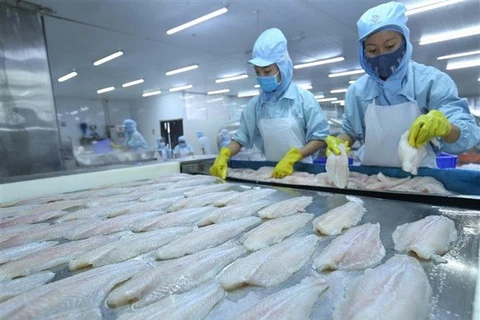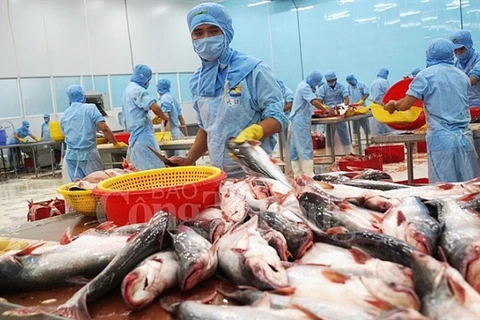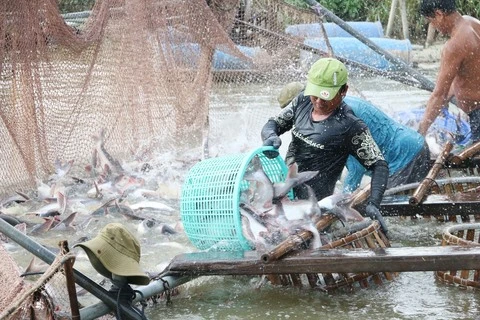HCM City (VNA) - For the shark catfish sector in the Mekong Delta region to develop sustainably, authorities need to regulate output and quality and the use of chemicals more stringently and prevent unauthorised farming, said Le Hoang Vu, head of Dong Thap province’s Sub-department of Fisheries.
Dong Thap province would push for more cooperation between brood stock producers, fish farmers and processing firms, he said.
This year, it plans to increase the area of fish farms by 150 ha to 2,600ha and output by 60,000 tonnes.
Tran Phung Hoang Tuan, head of the Sub-department of Fisheries of An Giang province, said his province is helping farmers through a three-tier project to produce high quality brood stock to supply farms in the delta, fully meeting demand by 2025.
The first tier involves research institutes and universities researching into techniques in selecting high quality fish breeders, the second involves brood stock producing centres and nurseries and the third, establishments that raise the fish until they reach the fingerling stage.
They produced nearly 1 billion shark catfish fry in 2017 –18, meeting around 30 percent of the farmers’ demand in the province, Vu said.
But many farmers are struggling to follow the instructions due to their unfamiliarity, he added.
Other provinces in the region too are planning to monitor shark catfish farming more closely, especially at the breeding and farming processes to ensure quality for exports.
According to Nguyen Van Khanh and Cao Luong Tri, two shark catfish farmers in the delta, the price of the fish has been extremely profitable for farmers at around 29,500 VND per kilogramme, sometimes even rising to a record 35,000 VND. This has made farmers happy since in the last few years prices have been volatile, they said.
But Tri also said that as a result people could switch to farming shark catfish en masse, resulting in a shortage of quality fish breeds, which could affect the market.
Vo Hung Dung, deputy chairman of the Vietnam Shark Catfish Association, said the fish output last year was 1.4 million tonnes, up 20 percent from 2017. Exports were worth a record 2.2 billion USD, 26.4 percent higher than in 2017, he said.
The industry targets exports of around 2.4 billion USD this year.-VNA
VNA























